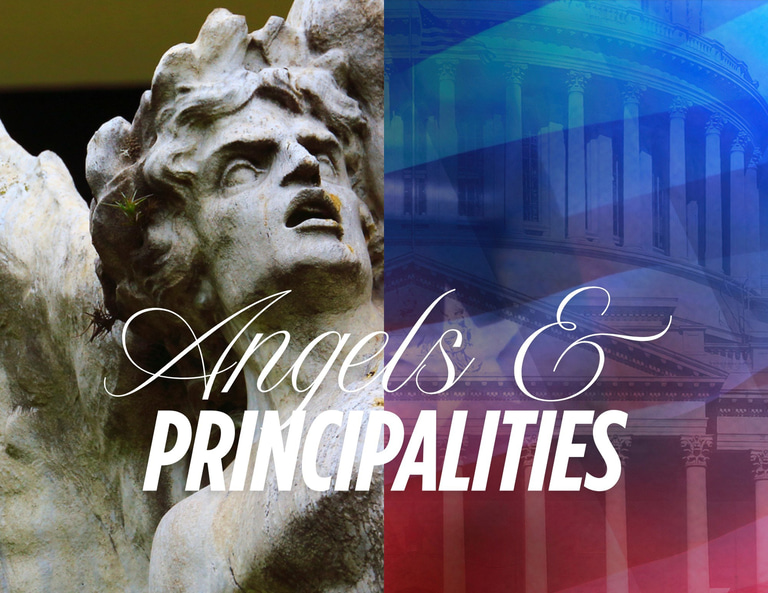Frank DuNN: Conversations at the junction of faith and politics
Vanished Jesus, Absent God, Dazed People
Living in hard times means rethinking just who and what we are.
Frank Dunn
6/4/20257 min read


“I read the news, or try to. It’s too much. Like trying to drink water from a fire hose.”
That’s how a friend described it recently, confessing bewilderment at what on earth one can do when the enormities pile up higher each day, the miseries increase, the vulnerable becoming ever more exposed.
In the Church, at least in that part of it that lives by the Church Year, we’re in that in-between time stretching from Ascension Day to Pentecost Day. To me, it feels much like Advent. We’re in a period of waiting, of wondering, of hoping, and maybe feeling a little despair. Not unlike the way I’ve often felt after a funeral. Yes, there was closure perhaps. But deep in your gut you know that the pain isn’t done with you. There are going to be days when something will kick up all the old pain and sorrow and regret, all mixed up with weird guests like relief and resignation. Be honest. It’s like drinking from a fire hose, though not so noisy, isn’t it? It’s just too much. Yet, what is there to do?
Wait, watch, pray, see.
St. Matthew says nothing about the Ascension, only what his reader might assume to be Jesus’ last appearance to his disciples. Jesus tells them, “All authority on heaven and on earth has been given to me. Go therefore and make disciples of all nations, baptizing them in the Name of the Father and of the Son and of the Holy Spirit, teaching them to obey all that I have commanded you. And remember, I am with you always, even to the end of the age.” [Matthew 28:18-20]
Star that for a moment while we take a look at Luke.
“Then he led them out as far as Bethany. And lifting up his hands, he blessed them. While he was blessing them, he withdrew from them and was carried up into heaven. And they worshiped him and returned to Jerusalem with great joy, and they were continually in the temple blessing God.” [Luke 24 :30-33]
Luke picks up the story in his sequel: “When they had come together, they asked him, “Lord, is this the time when you will restore the Kingdom to Israel? He replied, “It is not for you to know the times or periods that the Father has set by his own authority; but you will receive power when the Holy Spirit has come upon you, and you will be my witnesses in Jerusalem, and in all Judea and Samaria and to the ends of the earth.” When he had said this, as they were watching, he was lifted up and the cloud took him out of their sight. While he was going and they were gazing up toward heaven, suddenly two men in white robes stood beside them. They said, “Men of Galilee, why do you stand looking up toward heaven?” [Acts 1:6-11a]
Luke is the only gospel writer who purports to know the story, and even he has two versions of it.
As usual, the issue is not “what really happened?” It is rather another question: why are we being told this? What is the meaning of it?
On one level the ascension is a way of accounting for the end of the Jesus-on-earth story. As long as the resurrection appearances happen, the story continues. But at some point, that ceases. Where does he go? What is the point of it all? And, most of all, what is to become of those who have followed him?
Many years ago, when I was in high school, my parents and I were visiting far away from our home a Methodist church much like ours, on a Sunday night. The minister, I was later to learn, was a renowned preacher in those parts. It was in the spring of the year, not long after Easter. He based his sermon that evening on the passage above from Acts.
In the style of preaching in that day, he chose as his theme, “Is now the time?” repeating again and again the question, “Lord, when are you going to do it?” Is this the time when you’re going to restore the Kingdom of Israel? Is that what you have in mind?
Why have I never forgotten that night, that church, and that sermon? Probably for lots of reasons. One of them is that that question has frequently been my own existential question. As a young rector leading a parish a dozen years later, I more than once asked in my prayers when the parish was facing what felt to me like some cataclysmic budget issue, “Lord, when are you going to do it? It boiled down to, “Where are you, Lord? And why have you led me here to deal with this when I don’t exactly know what I’m doing?”
I have a few years on me and a handful of other parishes behind me now, but I’m still asking that question. I’m asking it now as the Constitutional underpinning of our Republic wobbles and threatens to give way under the sustained assaults leveled against it. Can’t you do anything, God? How long must we put up with this travesty of a government? How long must we endure everything from the abrogation of disaster preparedness to the suspension of health science?
I know better than to want or wait for an audible response. But the ache is still in my heart—for Gaza, for Kilmar Abrego Garcia, for little children who are being deported and for the thousands, maybe millions, who will soon be without food or medical help. Still, like a sunflower that just can’t quit turning itself towards the light, I keep facing the Source, where I, seen or unseen, keep wondering, pondering, questioning, “What now?”
I think there’s not resolution to this riddle, this dilemma, for a good reason. If the answer were all that obvious, we’d probably do what we always do with things that are first obvious, then precious, then idolized: we’d make a fetish out of it. A totem to be admired and revered. Never mind. We don’t have a resolution. Instead, we have a story.
That story. The one Matthew tells without the image of “ascension,” in which Jesus sends out his disciples to make disciples of all nations. Everybody, no matter their citizenship status, is invited to the banquet, welcomed into the community, given a seat of respect in the precincts of the Blessed, treated like what they are: saints, holy ones. Not because they are good or clever or intelligent, but because they are loved just by being.
That other story, too. The one Luke tells in Acts. Before it is the Acts of the Apostles it is the Acts of the Risen Lord. He blesses them and in effect leaves them waiting, indeed directs them to wait. “Tarry,” he says to them in an older form of the story. “Hang out. Wait. Wait. Wait. Power from on high will clothe you. And you’ll know what to say, where to go. So chill until you know.”
I’m not in a chill mood these days. I feel an itch of urgency. I’m feeling there’s not a minute to spare. Nor do I want to contribute to what could be the lethargy or despair or uselessness that people like you might be feeling. I do think that action is the best antidote to feeling powerless. Tiny things: addressing envelopes, making a phone call, sending an email, talking to a neighbor, showing up at a demonstration. Anything is better than sulking, bitching, moaning, or withdrawing in utter cynicism or despair. So how does all that square with waiting and hoping and listening and—
The answer to all that is Pentecost. When I was growing up, the only time I so much as heard the word “Pentecost” was when its adjectival form “Pentecostal” was used to identify the Holiness preacher, “Preacher Miles,” or the church we’d pass on the way to First United Methodist. They were Pentecostals. And I thought it meant “holy rollers.” Ironically, it took coming into the sometimes staid and solemn Episcopal sanctum that introduced me to the climax of the resurrection story. A rush of a mighty wind, tongues of flame, and the babble of linguistic overdose. That all might be metaphorical too, although I don’t think it was or is. The truth is, the answer to the query of where Jesus has gone or where God is “in all this mess” is not to gaze at the skies like stunned Boy scouts looking at the latest air show, but to believe that incarnation belongs to us.
We were always the Body of God, even before Jesus, because the body of God is every body, animate and inanimate, fashioned by and from the Source. Pentecost—not just the Day but the experience—makes plain that we are the ones who are the hands and feet and arms and legs and heart and genitals of the Christ now, fully human, infused with the power from on high to claim the world for love.
Ah! Hi-fallutin’ language, you may say. And you’d be right. But what choice do we have if not to speak in metaphor and symbol what heart knows but mind cannot quite grasp? The thing, the “trick,” it seems to me, is to get straight that “Pentecost” is not a once-and-for-all event, nor a particular occurrence that is going to look like Acts 2 all over again. It is understanding that Pentecost is ongoing. It must be.
Just look at what has happened in my own lifetime. I celebrated a birthday several days ago. Eighty years ago, I was born, three weeks after VE Day and 2½ months before VJ Day. Nobody around my bassinet was imagining that an earth-shattering bomb was about to go off in Hiroshima that would forever change the world. Only a few years later, my family gathered around the radio listening to the stentorian voice of Gabriel Heatter, reporting crises in China and Korea. It never stops. The crises pile on, flying incessantly down the chute. Progress is, if not an illusion, surely illusory. Pentecost comes and passes. Renewal is a never-ending necessity, empowerment a repeatable imperative.
Look into a mirror when next you pass one. There you will see the Presence of Christ. Your job and mine is to manifest the Spirit and the priorities of him whom we embody.
